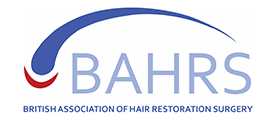UK and Turkish Medical Associations Unite to Issue Minimum Guidelines for Hair Transplant Surgery
13 December 2023 (Last updated: 13 Dec 2023 13:24)
Statement Issued by the British Association of Hair Restoration Surgery (BAHRS), the British Association of Aesthetic Plastic Surgeons (BAAPS), the British Association of Plastic, Reconstructive and Aesthetic Plastic Surgeons (BAPRAS) and the Turkish Society of Plastic, Reconstructive and Aesthetic Surgeons (TSPRAS)
There has been a significant increase in the number of people travelling abroad for hair transplant surgery. BAAPS and BAPRAS support the BAHRS position that hair transplant surgery for male and female pattern hair loss is a treatment for a diagnosable genetically caused and hormonally mediated medical condition, and that in the majority of cases should not be considered ‘cosmetic surgery’ It is important that members of the public understand that hair transplant surgery is not without risk. Whilst the chances of life-threatening complications are less than with general plastic surgery procedures, they still occur. Appearance related complications are more common and can have a significant psychological impact on patients. The BAHRS, BAAPS, BAPRAS and TSPRAS have made this joint statement to promote patient welfare and safety.
The BAHRS, BAAPS, BAPRAS and TSPRAS understand and recognise that there will always be patients from different countries who will seek medical and surgical treatments abroad. There are a variety of reasons for this, but multiple reports have highlighted concerns that our four national societies share regarding minimum standards of patient care. Undergoing any form of surgery risks experiencing a complication however, when having hair transplant surgery, these can be minimised if the surgery is agreed and planned ahead of time by the doctor who will be doing it and if the surgical steps of the procedure are performed by a doctor rather than a technician.
President of the BAHRS Chris D’Souza said: “Whilst in the United Kingdom patients can report suboptimal care by doctors (including inappropriate delegation of surgery) to the General Medical Council and unregistered clinics to the CQC (or the equivalent regulatory bodies in the devolved nations), this is not always the case in other countries.”
“The BAHRS, BAAPS, BAPRAS and TSPRAS have come together to offer advice and guidance for patients seeking hair transplant surgery in Türkiye (Turkey), which has a large hair transplant surgery tourism industry. The aim of this guidance is to help to protect patients from harm and ensure that they are aware of the standards of care (both before and after surgery) that they should expect as a minimum.”
The four organisations strongly urge anyone from the UK considering travelling to Türkiye for hair transplant surgery to consider the following points:
- Patients should have a consultation with the doctor who will be performing the surgery and who will make the recommendation on donor hair harvesting method, number of follicular units/hairs required, and hairline/transplant design.
- Patients should be given two weeks to consider the doctor’s recommendation and the proposed consent form before making any form of payment for surgery.
- Patients should be explicitly informed at the initial consultation if it will not be a doctor operating on them by making skin incisions to harvest the donor hair or implant it, including whether this will be a technician.
- The interim progress and final result of the hair transplant should be assessed by the doctor who performed the surgery and patients should have the opportunity to voice any grievances they have as well as a clear process for complaints.
- Systems should be in place for complications to be dealt with by the clinic during and outside of working hours, such as assessing skin necrosis, infection, cysts, dysaesthesia, and supplying antibiotics.


View other press releases